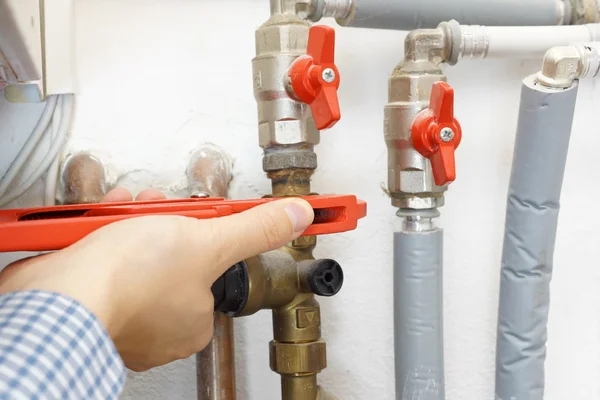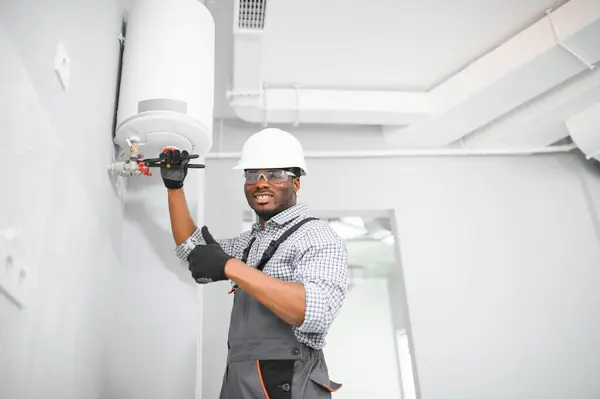Essential Boiler Service Checklist For Homeowners: Key Points To Remember
Ensuring your boiler is well-maintained is crucial for both efficiency and safety in your home. Regular servicing not only extends the lifespan of your boiler but also helps prevent costly breakdowns and ensures it operates at peak performance throughout the year.
Importance of Regular Boiler Servicing
Regular boiler servicing offers peace of mind, knowing that your heating system is safe and efficient. It's recommended to service your boiler annually to maintain its warranty validity and to comply with safety regulations.
Key Components of a Boiler Service
When a Gas Safe registered engineer performs a boiler service, they follow a comprehensive checklist to ensure every critical component is inspected and maintained.
External Inspection
The service begins with an external inspection of the boiler and its surroundings. This includes checking for any signs of damage, leaks, or corrosion. The engineer will also inspect the ventilation requirements to ensure proper airflow for combustion.
Internal Inspection and Cleaning
Next, the engineer will open up the boiler to inspect internal components such as the burner, heat exchanger, and controls. They will clean these components as necessary to remove any dirt, debris, or scale buildup that could affect efficiency or lead to malfunctions.
Flue and Emissions Check
A crucial part of the service involves checking the flue system to ensure it's free from blockages and safely removes combustion gases. The engineer will also conduct emissions tests to ensure the boiler is burning gas cleanly and efficiently, minimizing its environmental impact.
Performance and Safety Checks
After cleaning and inspecting internal components, the engineer will perform tests to ensure the boiler operates safely and efficiently.

Pressure and Leak Tests
Pressure tests are conducted to ensure the boiler maintains the correct pressure levels. Any leaks in the system will be identified and rectified to prevent water damage and loss of pressure.
Maintenance Tips for Homeowners
To extend the lifespan of your boiler and maintain its efficiency between services, consider implementing these maintenance tips:
- Monitor Pressure Regularly: Check boiler pressure gauge readings periodically and adjust if necessary.
- Bleed Radiators Annually: Ensure all radiators are heating evenly by bleeding them to release trapped air.
- Schedule Regular Checks: Keep track of when your boiler is due for servicing and set reminders accordingly.
The Role of Boilers in Home Heating Systems
Boilers play a pivotal role in heating homes by generating hot water or steam for radiators, underfloor heating, or domestic hot water supply. Whether powered by gas, oil, or electricity, boilers require regular maintenance to ensure they operate efficiently and safely.
Efficiency Impact of Boiler Maintenance
Efficiency is crucial for reducing energy bills and minimizing environmental impact. A well-maintained boiler burns fuel more efficiently, translating into lower energy consumption and costs. This not only benefits homeowners financially but also contributes to sustainability efforts by reducing carbon emissions.
Safety Considerations in Boiler Operation
Safety should always be a priority when dealing with home heating systems. Neglected boilers can develop faults that compromise safety, such as gas leaks or carbon monoxide emissions. Regular servicing by a qualified engineer ensures these risks are mitigated through thorough inspections and maintenance protocols.
Signs Your Boiler Needs Servicing
Recognizing when your boiler requires servicing can prevent breakdowns and costly repairs. Look out for these indicators:
- Unusual Noises or Smells: Strange noises, such as banging or whistling, could indicate issues with internal components like pumps or valves. Similarly, unusual smells like sulfur or burning could signify potential gas or oil leaks.
- Inconsistent Heating or Hot Water Supply: If your boiler struggles to heat your home adequately or doesn't provide consistent hot water, it may be due to underlying issues with circulation or heating elements that need attention.
- Increased Energy Bills: A sudden spike in energy bills without a corresponding increase in usage could indicate that your boiler is operating inefficiently, possibly due to a buildup of deposits or faulty components.

Steps in a Professional Boiler Service
Boiler servicing is a critical aspect of home maintenance, essential for maintaining efficiency, ensuring safety, and prolonging the lifespan of your heating system. A professional boiler service typically involves several thorough steps performed by a qualified engineer. Here’s what you can expect during a professional boiler service:
Initial Assessment and External Inspection
The boiler service begins with an initial assessment where the engineer conducts an external inspection of the boiler and its surroundings. This step is crucial for identifying any visible signs of damage, leaks, or corrosion on the boiler casing or pipework. The engineer will also check the ventilation around the boiler to ensure there is adequate airflow for combustion.
Internal Cleaning and Component Checks
Once the external inspection is complete, the engineer will proceed to open up the boiler and inspect its internal components. This includes cleaning critical components such as the burner, heat exchanger, and combustion chamber. Over time, these components can accumulate dirt, debris, or scale, which can affect the boiler’s efficiency and performance. Cleaning them ensures optimal heat transfer and combustion efficiency.
Flue and Emissions Testing
Testing the flue system is a vital part of the boiler service. The engineer will check the flue for any blockages or obstructions that could restrict the flow of combustion gases. Clearing the flue ensures that these gases can safely exit your home, reducing the risk of carbon monoxide buildup. Additionally, emissions testing may be conducted to verify that the boiler is burning fuel cleanly and efficiently, minimizing its environmental impact.
Pressure and Safety Checks
Maintaining the correct pressure within the boiler is essential for its safe and efficient operation. The engineer will perform pressure tests to ensure that the boiler maintains the manufacturer's recommended pressure levels. This step also involves checking safety devices such as the pressure relief valve and expansion vessel to ensure they are functioning correctly. These safety checks are crucial for preventing over-pressurization and potential boiler failures.
Suite 1/01,10 Ferntree Pl, Notting Hill VIC 3168, Australia
Phone:613-8560-0419

